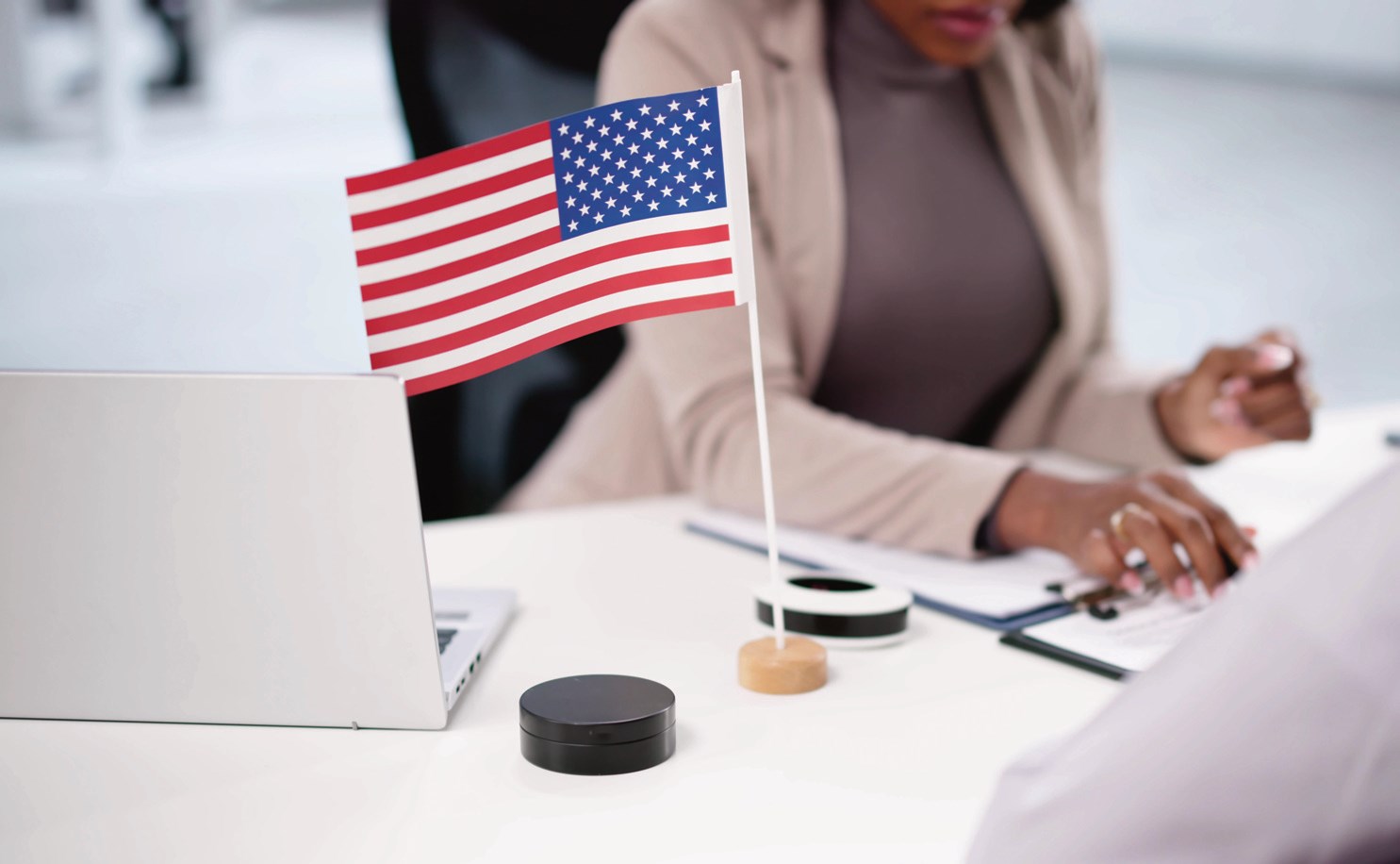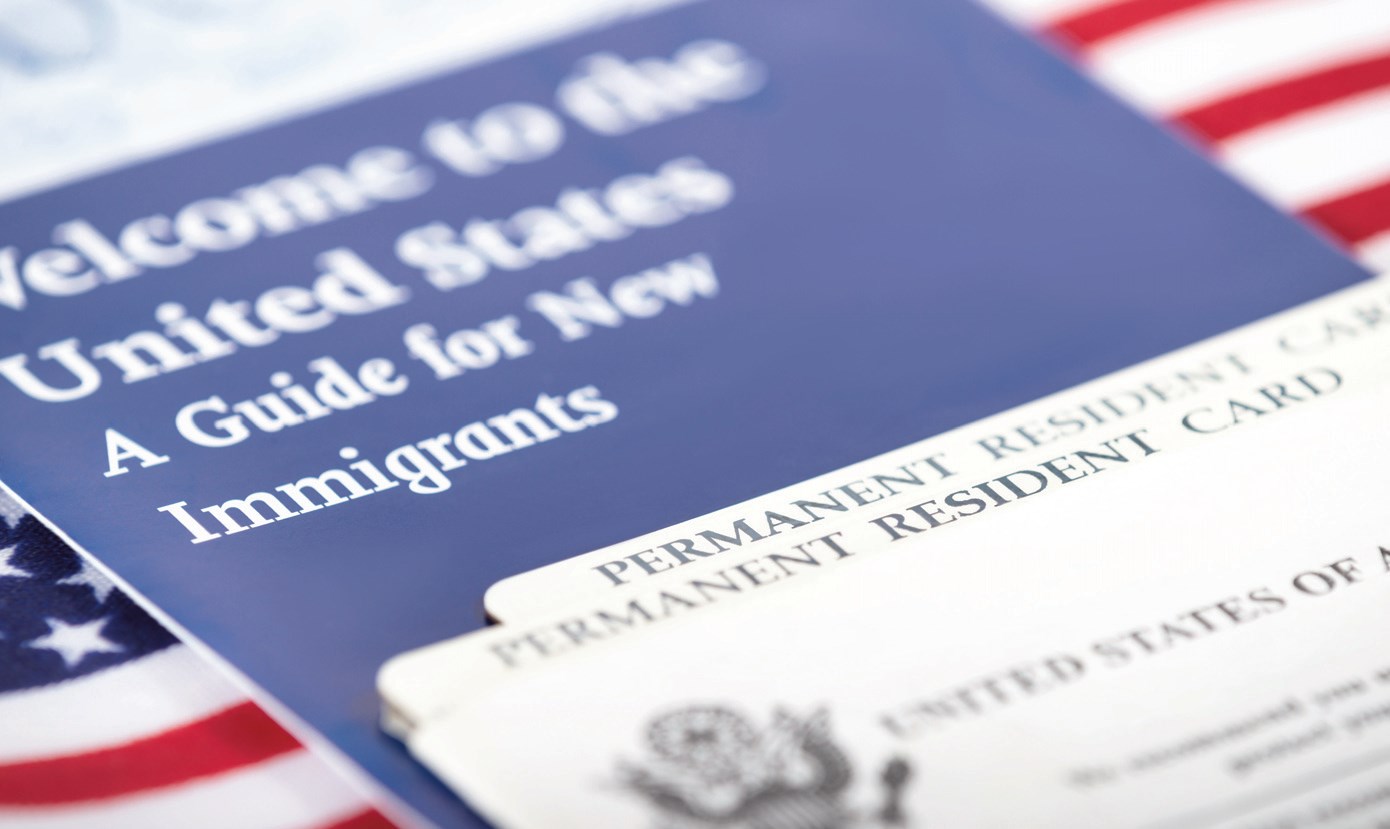Coveted Permanent Residence Status card STOCK PHOTO
By David L. Snelling
Miami – Under pressure to sign into law or veto a controversial bill that would make it a crime to be an undocumented immigrant in the city of Jacksonville, Mayor Donna Deegan refused to do either.
Instead, she decided not to sign the bill, which still becomes law and makes it even tougher for illegal immigrants who are the target of President Donald Trump’s massive illegal immigration crackdown operation.
The Jacksonville Illegal Immigration Enforcement Act makes the city the first in the United States to implement such a law.
Deegan also could’ve vetoed the bill but faced backlash from the bill’s supporters and possible penalties imposed by Florida Gov. Ron DeSantis and Florida Attorney General Attorney James Uthmeier.
City council members, DeSantis, Uthmeier and other supporters of the law were awaiting Deegan’s decision since council members approved it on a 12-5 vote two weeks ago.
She had until April 1 to sign it into law or veto it but instead called a news conference at City Hall on April 2 to express her deep feelings about the bill and immigrants living in Jacksonville.
“I want to be crystal clear; I believe this bill is not necessary,” she said. “And I will not sign it. It will become law without my signature. Allowing it to come into law without my signature does not impede law enforcement or prevent them from doing their job in any way. It does keep my name from being attached to something that creates a sense of fear for immigrants living here lawfully.”
As part of the bill, Deegan said she will support spending roughly $76,000 for 25 mobile fingerprint scanners for the Jacksonville Sheriff’s Office to identify undocumented immigrants.
“I wish that alone would be law,” she said. “But it wasn’t.”
The Jacksonville law states that an immigrant 18 years or older who enters the city without legal status can be convicted and serve a mandatory 30 days in jail. Repeated offenders will be ordered to serve 60 days in jail.
Deegan defended the immigrant community and said it’s the mainstay of Jacksonville’s economy.
“How do I feel about the immigrant community?” she asked. “They contribute to our community. They pay $1.4 billion in taxes each year. And that’s huge by the way in Jacksonville. They work hard and they are entrepreneurs. And the facts are clear.”
Deegan said immigrants shouldn’t be painted with a criminal brush.
“Immigrants commit fewer crimes than those of us who are native Americans,” she said. Like us, they want violent criminals off the streets and the Jacksonville Sheriff’s Office is doing an incredible job doing that. Our violent crime stats continue to fall.”
Deegan, who was elected in 2023 and the first female mayor of Jacksonville, said the city’s anti-immigration law is not necessary because state and federal laws already require similar enforcement.
A federal judge in Florida placed a temporary block on the state’s law which makes it a crime for undocumented immigrants who enter the state.
Deegan said Jacksonville’s spending money on enforcing the city’s law is a waste.
“Nothing in this bill is already required by state and federal laws,” she said. “The state law already carries a harsher penalty, so why does the Jackonsivell Sheriff’s Office need to arrest someone under a new local ordinance when they always have the stronger state law?”
Deegan said she sympathizes with immigrants because her family members were immigrants as well and wouldn’t want anyone targeting them.
“They are immigrants who come from Lebanon, they came over a century ago searching for a better life,” she said while holding up a picture of her family. “And like so many others, they worked so hard and built a foundation for the next generation. That spirit and hope is still alive in our immigration family in Jacksonville.”
Most law enforcement agencies in Florida backed the proposal, saying it would ease the dangers illegal immigration has on public safety.
After the city council’s vote to approve the new law, Deegan was caught in the crossfire between supporters and antagonists.
After the vote, Deegan expressed a concern that the law may be unconstitutional and was studying the issue to make sure Jacksonville doesn’t become the target of lawsuits and protests by immigration organizations. She said the city could face costs such as the cost of defending the law in court.
She also said judges have historically ruled the federal government has exclusive control over immigration and the Jacksonville law would certainly face a legal challenge on those grounds.
“At the end of the day, I just want to see what the exposure is to the taxpayers,” she said after the vote.
While mulling a decision, Deegan hosted several town hall meetings where people in attendance seemed split on the issue.
Maria Garcia, a member of the Jacksonville Immigrant Rights Alliance, said the law is unconstitutional and hampers immigrants’ pathway for citizenship.
“It’s disappointing that that legislation passed but this is not the final say,” said Garcia
Jacksonville City Councilman Kevin Carrico, who sponsored the new legislation, was calling on Deegan to sign the law after the workshops.
He, too, hosted a workshop before Deegan’s April 2 press conference.
After Deegan’s decision to not sign the bill into law, Carrico said the mayor failed to address a significant issue and lacked leadership.
“Punting and playing politics on an issue as critical as this is disappointing, but it’s still a victory,” he posted on X. “The bill becoming law is a “win for the safety of Jacksonville families and a bold step forward as we lead the nation in local illegal immigration enforcement.”
Uthmeier also praised Jacksonville’s new law despite Deegan’s refusal to sign it.
“I commend the city if they are looking to do things to better enforce rule of law, ensure that people are in the country legally and that we are protecting our families and our kids,” Uthmeier told reporters in Jacksonville.
But immigrant advocacy groups may challenge Jacksonville’s new immigration enforcement law since the state’s version is being challenged in the courts.
According to the Miami Herald, On April 4, U.S. District Judge Kathleen M. Wiliams granted a motion to place a temporary block on state law at the behest of the Florida Immigrant Coalition, the Farmworker Association of Florida and two individual plaintiffs.
The plaintiffs claimed state law for criminalizing undocumented immigrants is unconstitutional.
The lawsuit contends the law violated what is known as the Supremacy Clause of the U.S. Constitution because immigration enforcement is a federal responsibility











No Comment